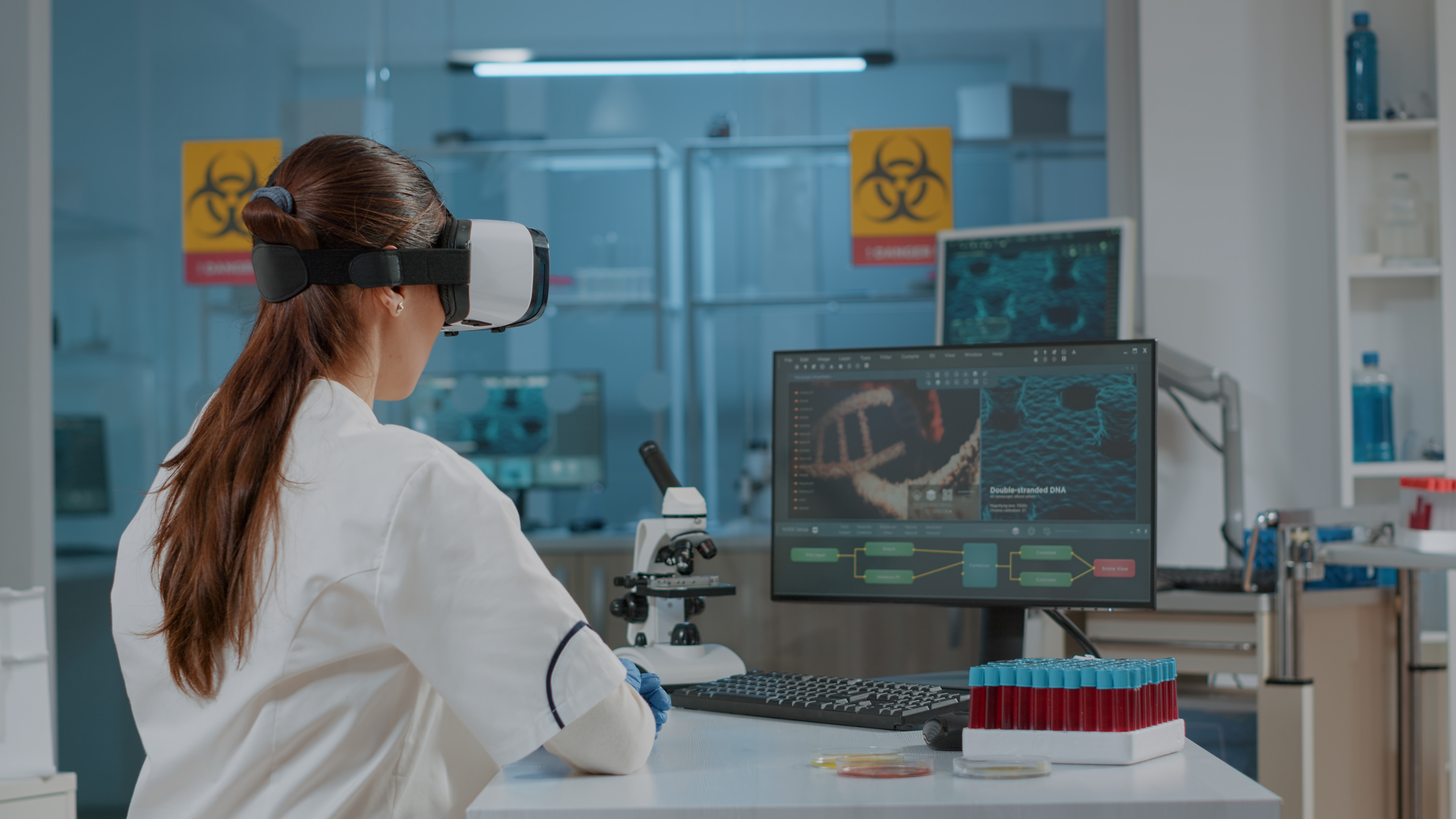Healthcare to lead gen AI and VR in L&D
Learning and development professionals employed in the healthcare sector say possibilities are endless for generative artificial intelligence and VR tools.
A survey in the US from Virti finds healthcare is ramping up training tech as it's learning and development practitioners identify endless possibilities for generative AI and immersive training applications.
The more familiar L&D is with generative AI, the more conviction they express in its potential to enhance healthcare training.
- 88% see potential in gen AI
- 77% have implemented immersive tools or plan to
- 50% have personally experimented with generative AI and 31% plan to do so.
Immersive training tech is gaining traction
- 85% at least "somewhat familiar" with immersive training tools
- 34% have implemented VR/AR tools
- 43% plan to implement VR/AR tools
- 64% say there is more interest in immersive tech today than three years ago
The use cases for immersive technology for L&D purposes in healthcare are wide-ranging, from practicing emergency medical procedures and pre-operative preparation to foundational medical training and communication skills.
Top four "high potential" use cases:
- Safety or hazard awareness training (60%);
- Train, practice or rehearse complex or emergency situations (56%);
- Foundational medical education (52%);
- Preparing for procedures (i.e., pre-operative) (51%).
Students perform medical interviews with an AI "patient"
A university pilot program is offering simulations to medical, nursing and respiratory care to students. This includes a medical interview with "Mike White", an avatar powered by generative AI. Students are required to physically check vital signs, such as measuring the patient's blood pressure, taking their temperature, listening to their heart and lungs and even conducting a capillary refill. It's a vast improvement over how it was previously taught, with traditional video and lectures. By the time students get their clinical studies they have already had practice in the simulation.
- Realism in healthcare training is crucial. 86% of respondents say realism is "very" or "extremely important." Nine in 10 say their organization strives to create a sense of realism in training at least some of the time.
- Immersion accelerates learning and improves clinical performance. The top benefits respondents identified link L&D to performance. Respondents indicated trainees learn faster in immersive environments (49%) – and it improves clinical performance (46%).
- Healthcare organizations are generally supportive of L&D. 74% say their organization is committed to funding new technologies for L&D.
"Respondents see a clear link between immersive learning technologies and clinical performance," said Kurt Kratchman, CEO, Virti. "Whether it's a single doctor learning a new surgical procedure from a top surgeon or training the next generation of nurses, students learn faster and retain what they've learned."
The report is available for download: How healthcare is using virtual reality and AI for learning and development in 2023.
More information
Frank Strong
+1 202-352-5920
frank@swordandthescript.com


